Question of the Week: September 26, 2019
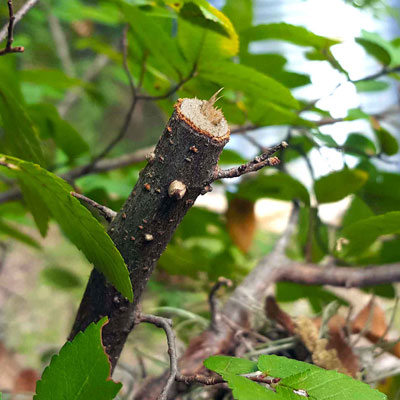
“Why are branches falling off my tree? They look like they’ve been cut.”
This is the work of the twig girdler beetle. It’s actually a fascinating life process. The adults are active in late summer into early fall. They mate, and the female uses her mouthparts to encircle small twigs of pecans, elms and many other species, leaving only a small piece of the twig tissue in place.
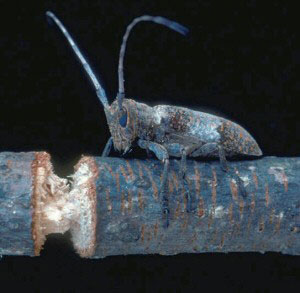
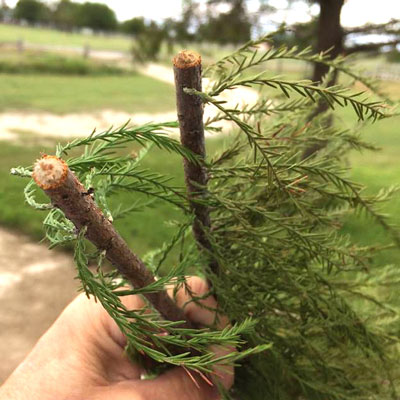
She then deposits a small number (3-10) eggs into the wood of the twig. The eggs hatch, and the larvae develop within the dead twig either while it’s still on the tree or after it falls to the ground. They pupate while still within the twigs and emerge in late summer to start the next life cycle.
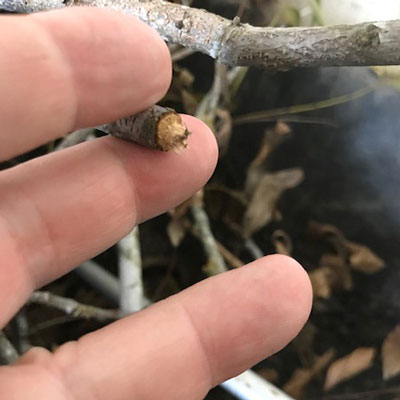
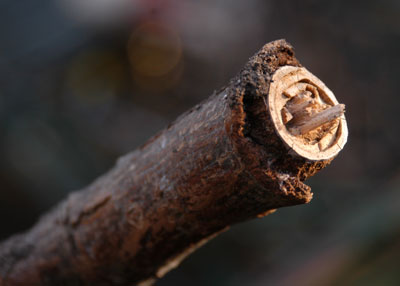
Because the female doesn’t really feed on the tree while she is depositing the eggs, spraying isn’t of much help because you’re not likely to be there when she is active. And there is no spray that will reach the larvae inside the twigs.
By deduction, about your only means of reducing the population is to gather the fallen twigs and burn them or send them off to the landfill. Of course, the hundreds of trees in the neighborhood or in the park or woods around you are going to have their own source of supply, so you’re probably going to be seeing twigs on the ground for years to come.
2019 has started out as an especially active fall season for them. I’ve had a lot of inquiries already.
(Here is a more scholarly outline of all of this from Oklahoma State University.)
